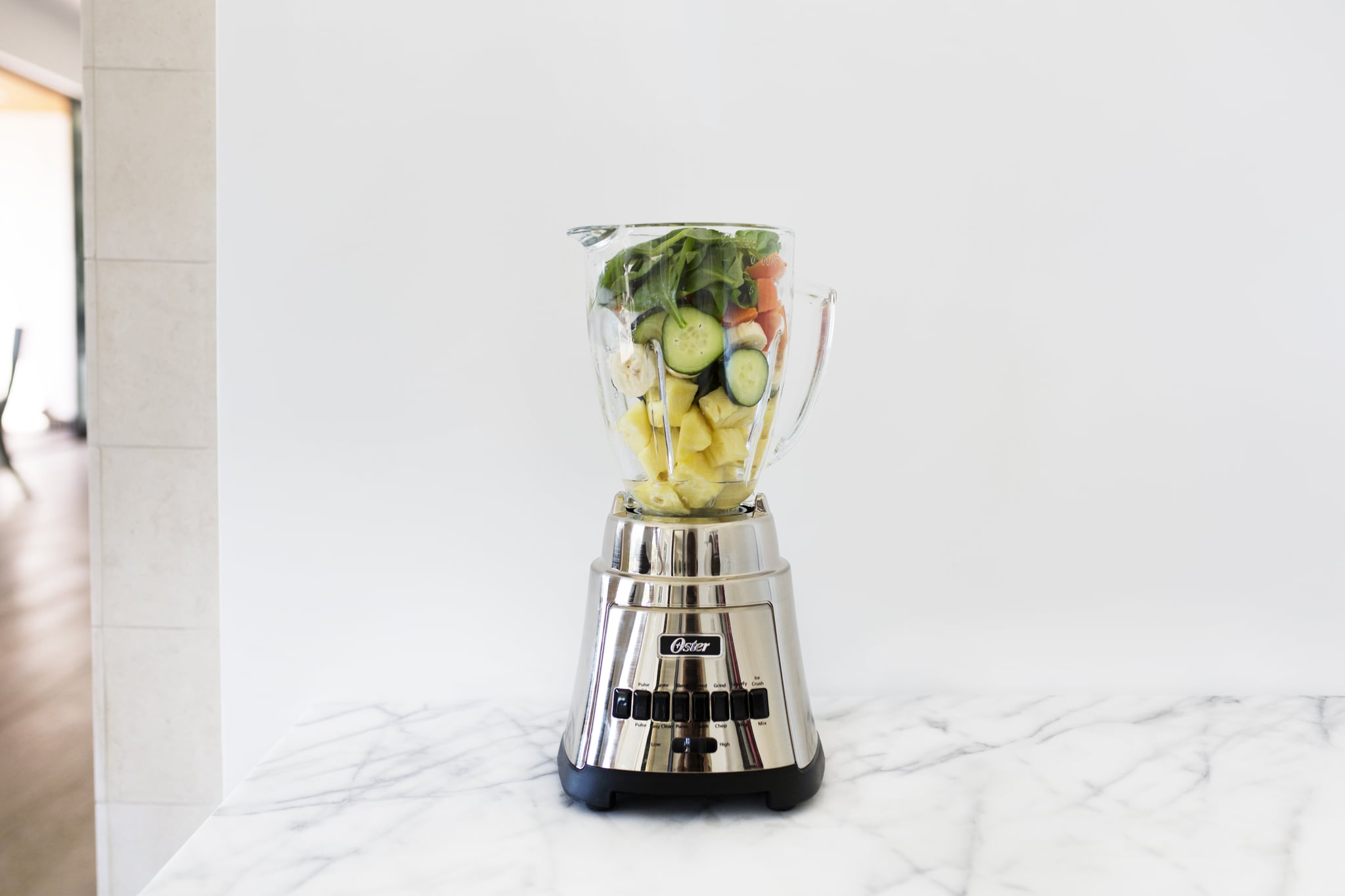
Staring at a juice label in a grocery store, a number glared at me: 34 grams of sugar. "Holy shnikeys," I thought (my internal dialogue is 100 percent dad speak). "That's almost twice the amount of sugar I'm supposed to have in one day!"
But wait, that's the cap on added sugar, and there's a note on the front: "No Added Sweeteners." The FDA has guidelines for everything — recommended intake on protein, fat, carbohydrates, calories, and added sugar . . . but not natural sugar. Was that too much natural sugar? How much is too much?
Let's say a juice — like Suja Blue Dream [2], for example — has no added sweetener, but 34 grams of sugar in a bottle. It all comes from fruit, but is that too high an amount?
To get some clarification on the matter, we consulted Lara Felton [3], RDN behind the ShopWell app [4]. Felton told us, "There is no cap on natural sugars, the kind of sugar found in fruits, veggies, and dairy [these natural sugars are known as fructose and lactose]." Seriously, no limit?!
"Most Americans don't eat enough fruits and veggies daily anyway," she noted, "so the recommendation is to encourage more, not less." That made sense to me — it's about what you should be eating, not what you shouldn't. The emphasis is on putting good, natural foods in your body.
She continued, "Regardless of how much natural sugar is in a fruit, vegetable, or dairy product, they're nutrient-dense foods, full of fiber, vitamins, minerals, and other good-for-you stuff. We don't worry about how much natural sugar a single fruit or vegetable may contain, just that a person is eating enough produce each day."
What she's saying is: bring on the fruits and veggies, and don't worry about satisfying a sweet tooth with a piece of fruit or a smoothie. That stuff is good for your body. As long as you're monitoring your carbohydrate intake and not going overboard, have at it! And on that note, if you're opting for fresh-squeezed or cold-pressed juice, then just be wary of caloric intake. "Juices have a slight caveat — one cup of 100-percent fruit juice (not additives, preservatives, or sweeteners, just juice from the whole fruit) counts as a serving of fruit. However, fruit juice has more calories than a whole piece of fruit so you need to make sure if you're drinking juice, it fits within your calorie needs for the day. Less of a worry about the natural sugars in 100-percent fruit juice and more about making sure you aren't overdoing it on the calories."
Lara reminded us to aim for seven to nine servings of fruits and vegetables each day, and two to four servings of lower-fat dairy, "preferably without added sugars." Opt for natural, unsweetened products and focus on whole ingredients, and you'll be good to go.
If you do need a sweetener in your food, Lara loves natural sweeteners like maple syrup, agave, or honey — however, "just because they are less processed and from a natural source, doesn't mean they they count as a natural sugar." Bottom line: extra sweetener = added sugar, and these healthier sweeteners count toward your daily limit of added sugar grams just as much as corn syrup or table sugar would.
